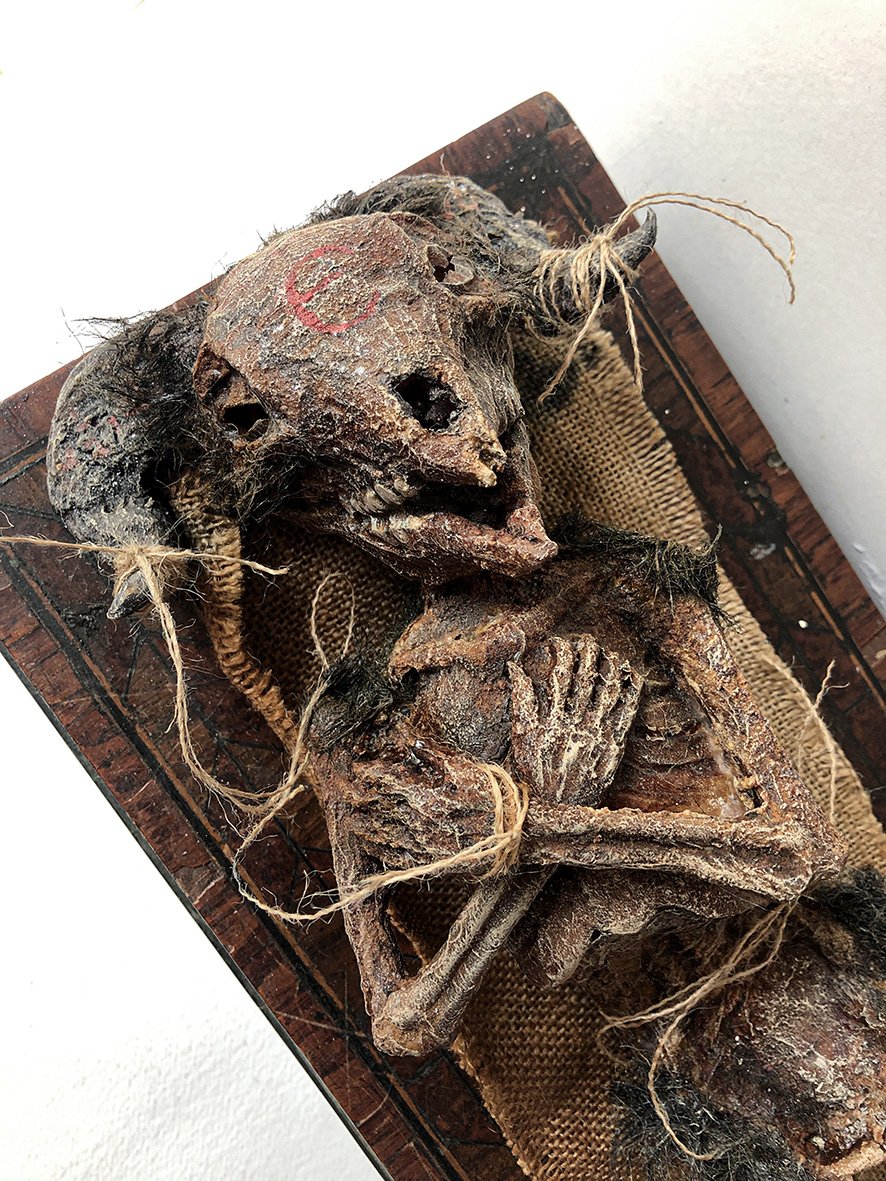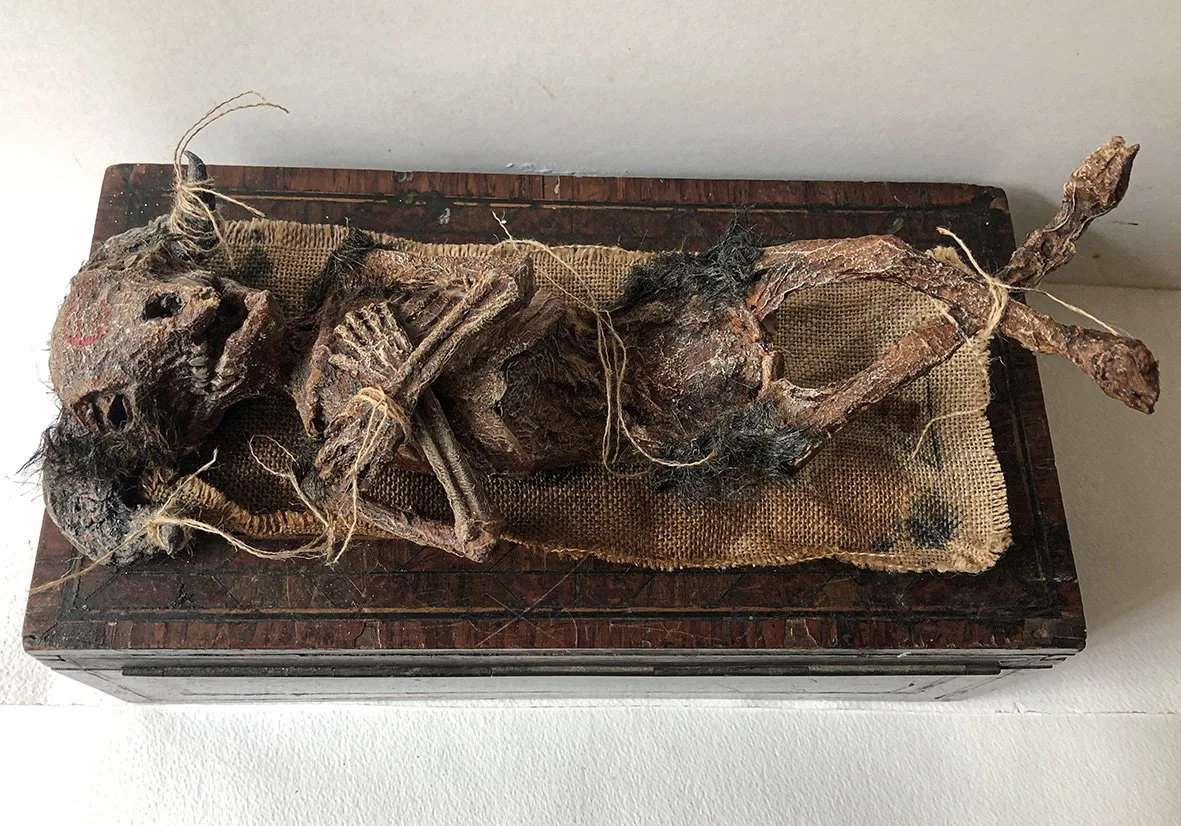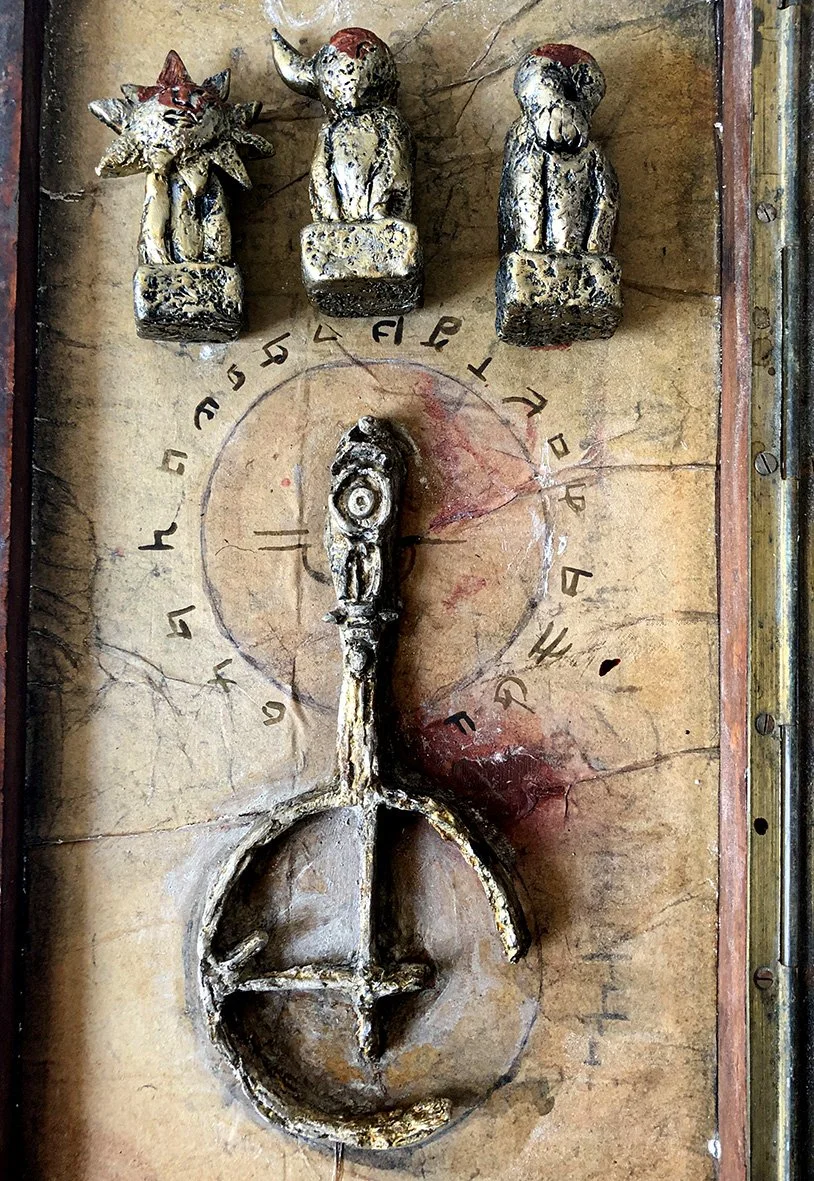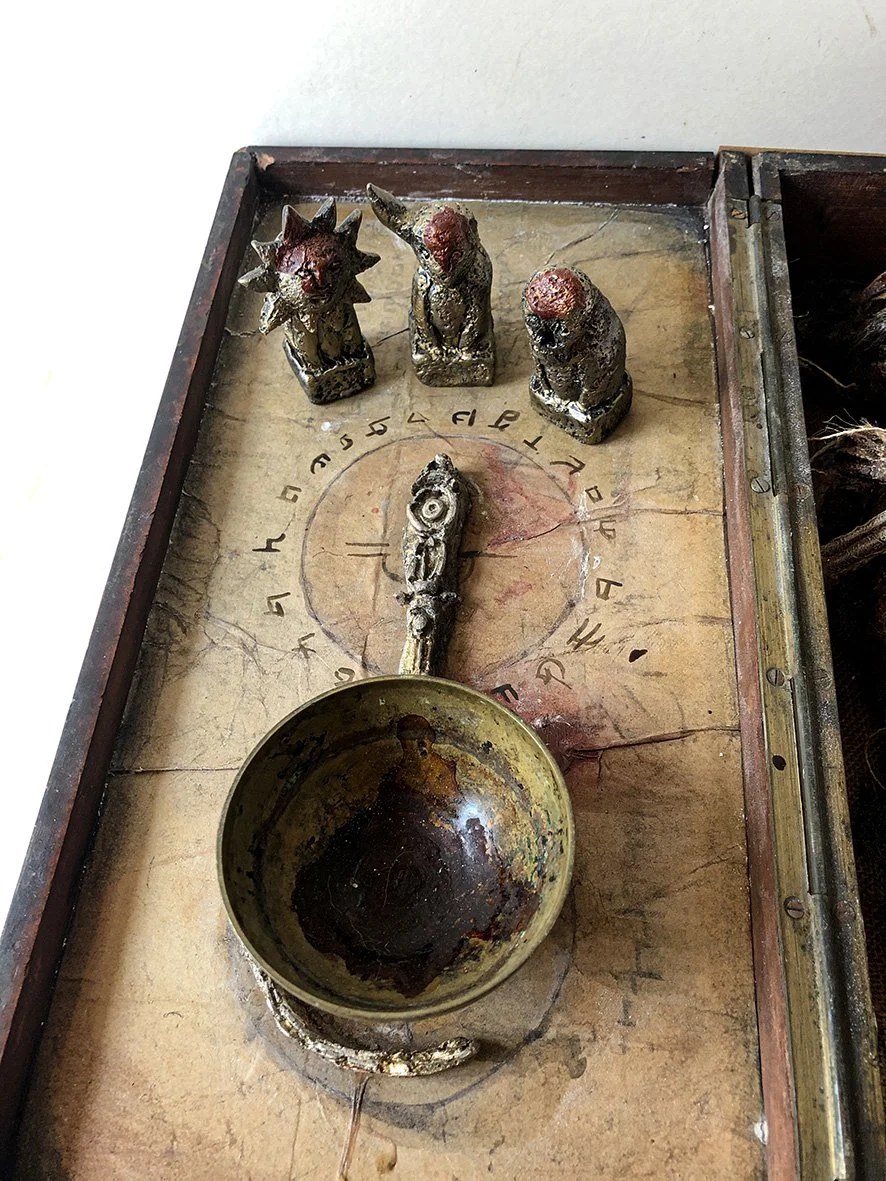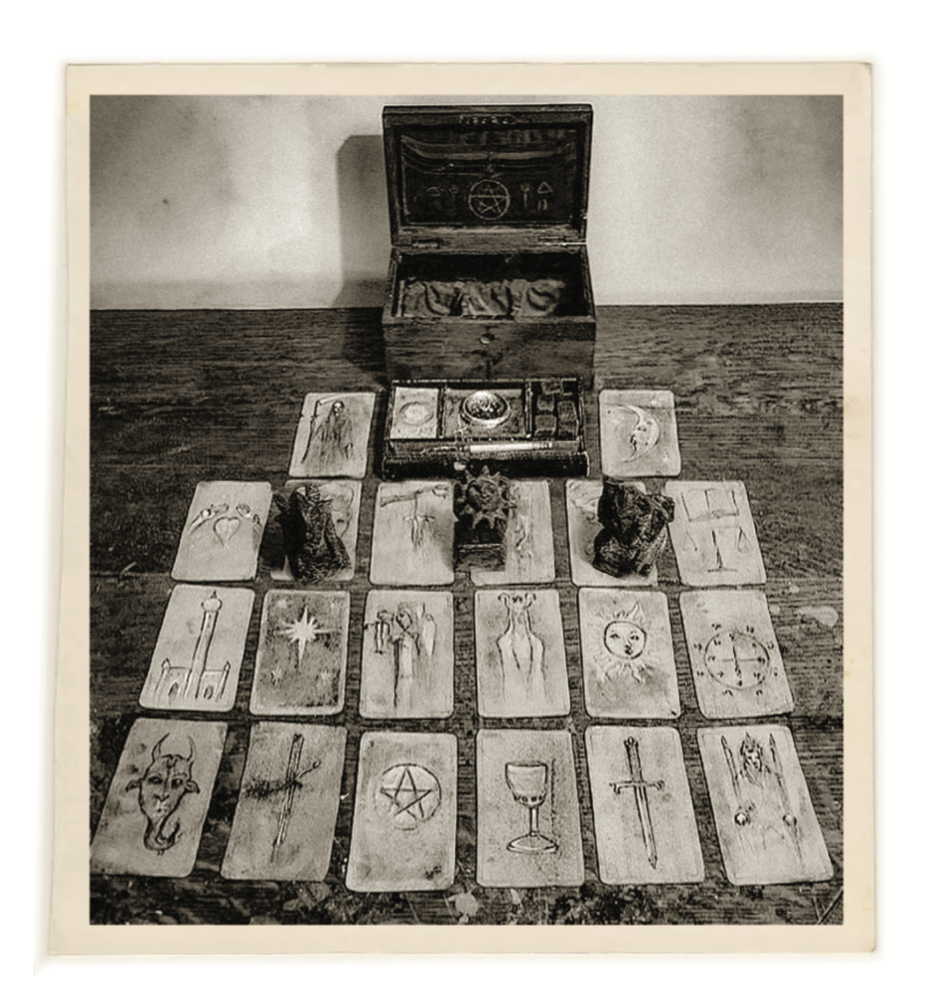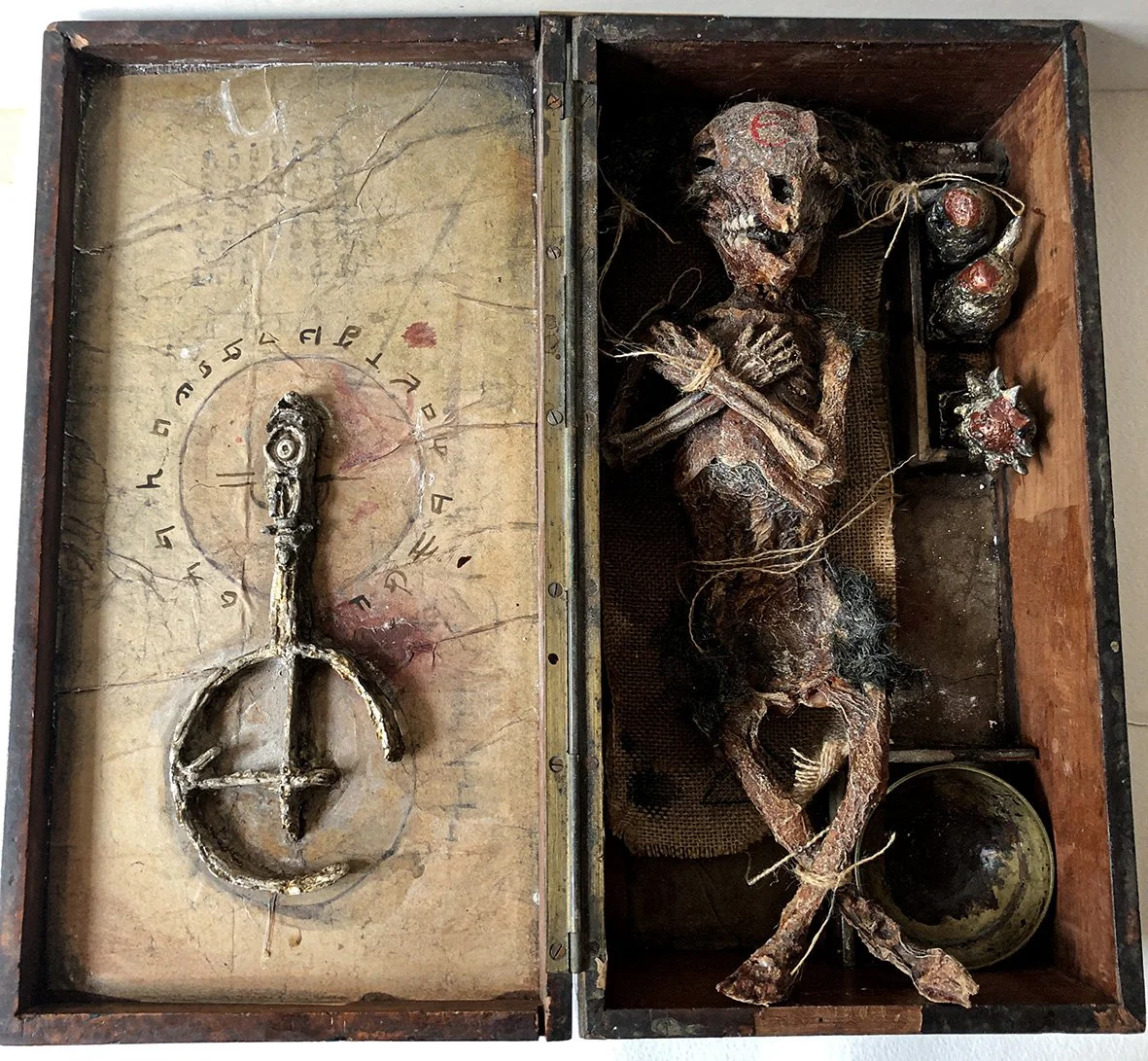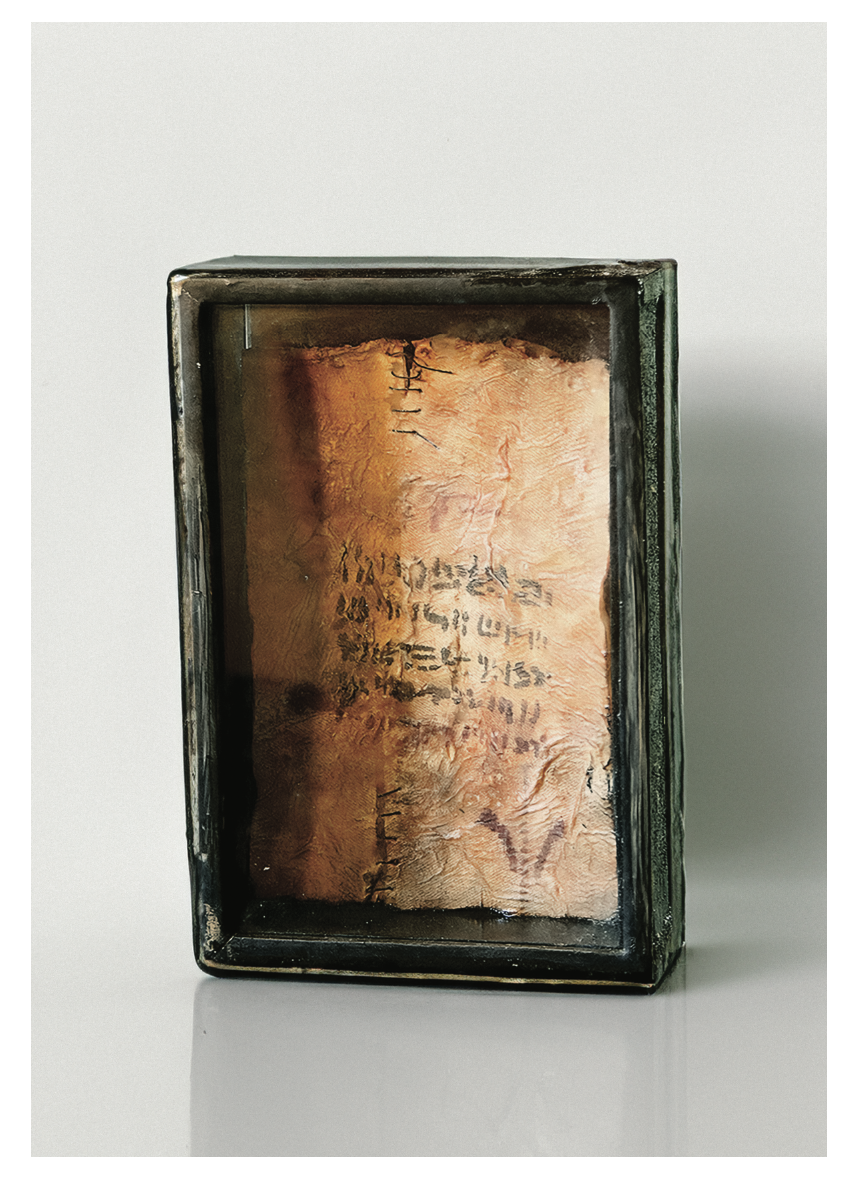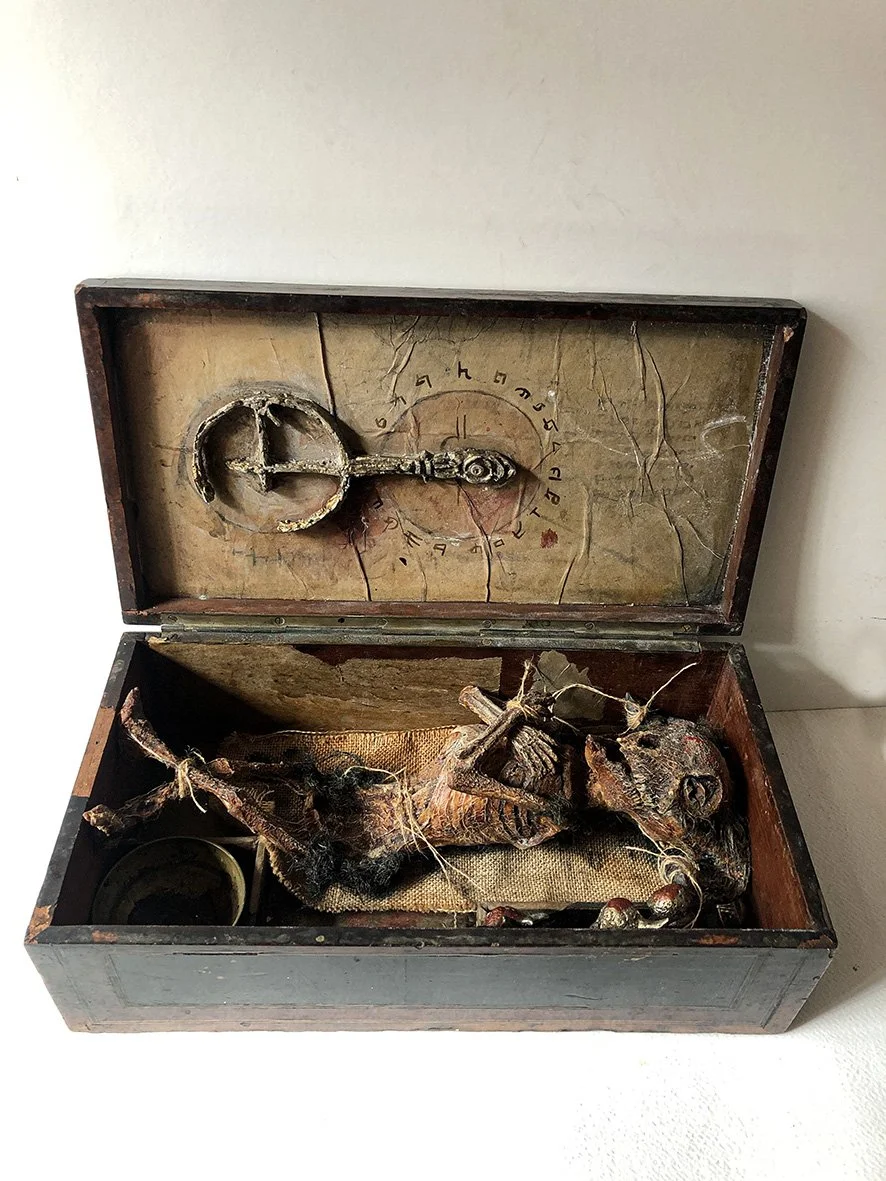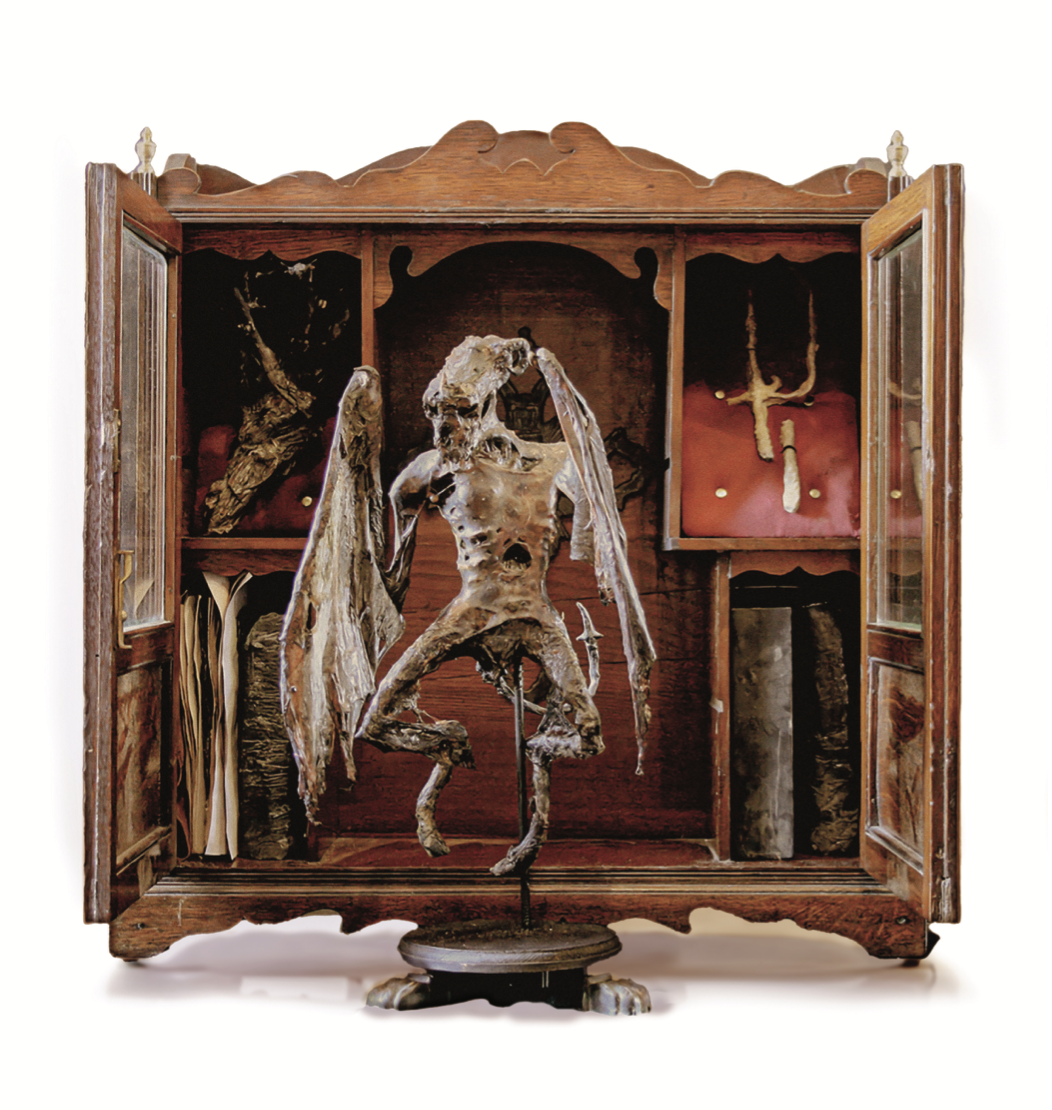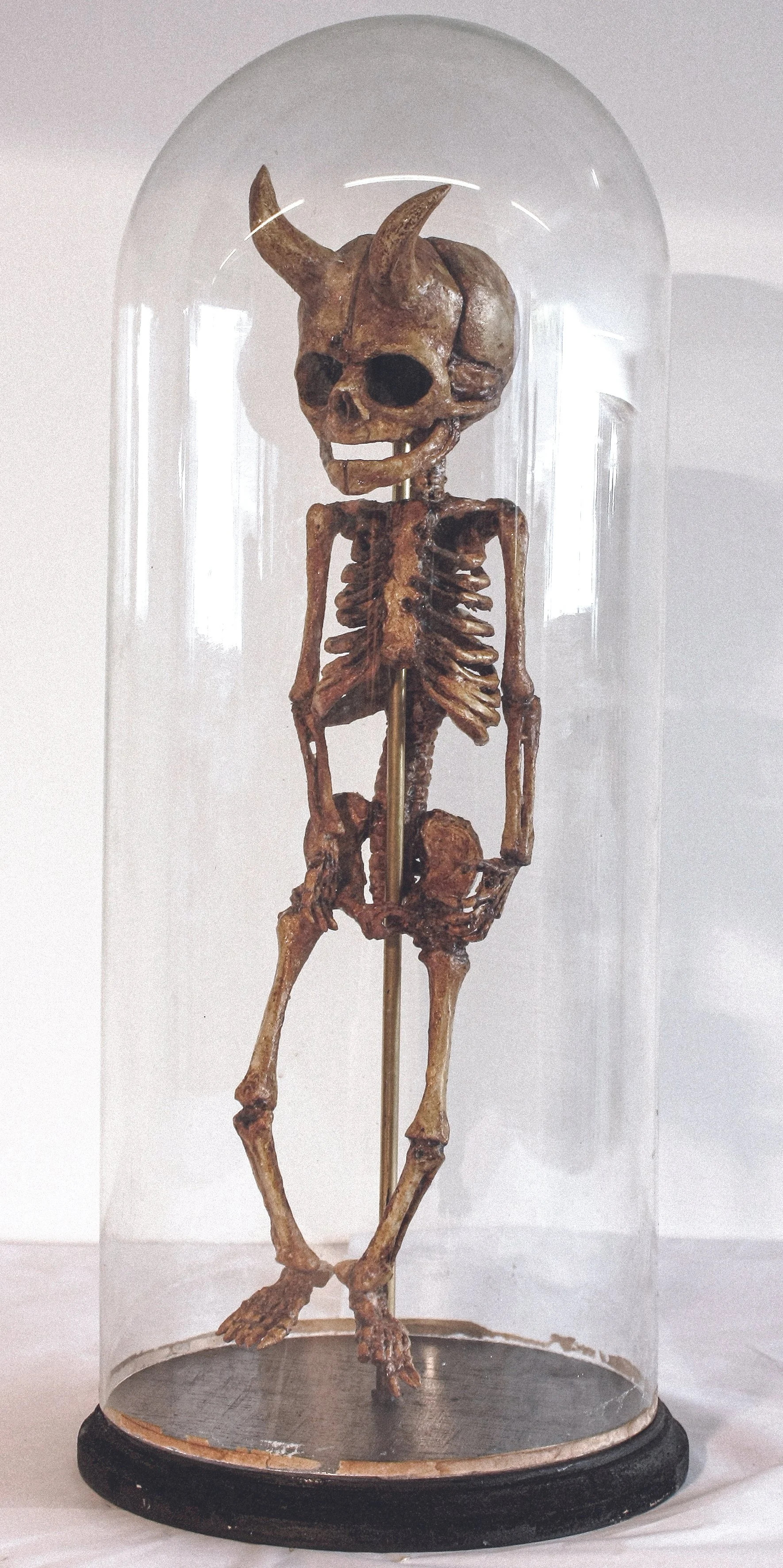Thomas’s initiation inti the occult had begun as a young boy. Years before his father’s decline, Edward had moved in the highest echelons of society. Much of his dalliances with his peers had ulterior motives that would only become clear to Thomas after his father’s death. The Order of the Flaxen Sun was a cabal of wealthy men, whose power and ego had led them to form a pastiche-occult organisation in the footsteps of the Freemasons. With delusions of grandeur, they wished to harness their political and social power, peppered with mystical iconography and spiritualism. Thomas would observe his father’s dubious engagements with these men, peering through the banister at the creation of rituals that were little more than a pantomime, men who wished to be part of a ‘something’ greater than themselves, but not for any altruistic purpose. The formation, and eventual practices of this order, were performed, in part, at Merrylin House. This was all to aid Edward’s grand design, to write the tenets of this burgeoning secret cabal, with a view to controlling their power and influence to his own ends. He had spent his post-naval career extorting and hoarding wealth, so this was nothing new. Thomas was privy to acts of clairvoyance, sacrifice and summonings, all designed to flatter and court these moneyed men into Edward’s fold. Thomas was at first enamoured by his father’s abilities, not only in his power over high society, but also his control of what he would one day know to be the ‘weaving way’ -the Cathen Howen, the ability to affect reality on a subatomic scale. But Edward was too sure of himself, and Thomas watched as these men secretly plotted to use that which Edward taught them, without his involvement. As an adult, such abilities in the hands of delinquents terrified Thomas, and it would become something of an obsession to police the plethora of secret societies and occult groups, and their use of ‘divinations beyond their ken.’
The late 19th century saw a steep rise in the number of active groups, which he would infiltrate and observe. He found that, in most cases, no true acts of weaving were performed during the gatherings of ram-headed priests, naked sacrificial victims and black-robed miscreants touting gibberish into the ether. He was almost disappointed at the many altars he would stand before, monitoring the words uttered, the potions consumed, and the gods to which they prayed. It was almost always nonsense. The odd phrase would tease at inclinations, stirrings in the fabric of reality, but almost always misspoken, misunderstood. Yet, thought-forms were bought into being, abhorrent manifestations of their darkest desires. Below are. various examples of these, and the tools of practice in occult acts.


